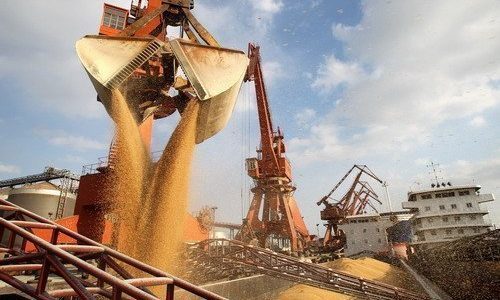[[{“value”:”

Mads Frank Markussen, head of freight research and FFA at grain brokerage Copenhagen Merchants, returns to the increasingly discussed issue of artificial intelligence and the future of chartering.
Consolidation and financialization are reshaping global markets, particularly in the freight and commodity sectors. As a handful of larger players gain disproportionate control over freight capacity and capital, smaller firms must turn to data-driven tools in order to stay competitive. This dynamic has accelerated the digitalisation of freight, prompting significant investments in artificial intelligence (AI). Recent AI advancements in other sectors, especially in language models both in the US and China, mean that now agents can “reason” through complex tasks. Even though we are not seeing any AI fixing, we have automated most of the calculations of freight rates and are now doing more than 500,000 freight rate calculations every day.
In many ways, consolidation in the shipping industry has accelerated the need for AI-driven solutions. A small number of shipowners and operators control much of the global tonnage, creating an imbalance in market knowledge, reach and negotiating power. Meanwhile, financialization, most evident in the rising trading volumes and algorithmic price-setting in the FFA markets, has made physical freight pricing more volatile. As hedge funds inject speculative capital into the market, short-term rate movements no longer purely reflect physical supply and demand. In this environment, automated tools become indispensable, providing real-time price assessments grounded in both physical transactions and forward curves.
We may only be 12 months away from large-scale AI freight agents
These shifts are not only changing how freight is priced but also how commodity traders perceive risk. Historically, freight was seen as a service cost, secondary to the core commodity trade. Now, with derivatives allowing participants to hedge or speculate, freight itself functions more like a standalone asset class. This evolution creates pressure for faster, more accurate calculations. And that is precisely where AI agents, technologies capable of autonomous decision-making, show extraordinary promise in many fields.
The freight sector is rapidly emerging as a prime testing ground for AI agents. While simple chatbots have existed for years, the newest generation of language models has demonstrated reasoning abilities: they can break down complex tasks, consider multiple steps, and arrive at more accurate conclusions. This capability, exemplified by systems like ChatGPT’s advanced chain-of-thought reasoning, means that AI agents can autonomously do a wide number of tasks. In the future, they will do more.
Given the sophistication of these reasoning engines and the fact that digitalisation has already streamlined data collection, I believe we may only be 12 months away from large-scale AI freight agents. Currently, we have automated most calculations for things such as major grain tradeflows, drastically reducing labour-intensive processes and creating time for what matters: talking to customers. Instead of multiple teams poring over spreadsheets and shipping indices, one AI platform could perform thousands of simulations in minutes, instantly updating rates as political, economic, or logistical variables change.
As consolidation drives up competitive pressure and financialization demands more complex hedging strategies, digitalisation continues to pave the way for data-centric solutions. This confluence of market forces has sparked an unprecedented wave of investment in AI for freight.
The age of autonomous AI freight agents that can calculate an unlimited amount of options day and night SHINC (Sundays and Holidays Included) is here. For an industry long reliant on manual processes and opaque pricing, AI brings speed and efficiency, and a more level playing field in markets dominated by large global players. Now everyone can become global in seconds. The race is on, and within a year, these AI agents could well become the norm rather than the exception in global freight trading.
Interested to find out more about the intersection between chartering and technology? Attend Geneva Dry’s Chartering Spotlight on April 28 in Switzerland to find out how brokers and platforms will evolve, and what owners and charterers will seek out of their broking houses in the years ahead. Visit www.genevadry.com to find out more.
The post AI freight agents are coming sooner than you think appeared first on Energy News Beat.
“}]] 
